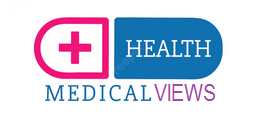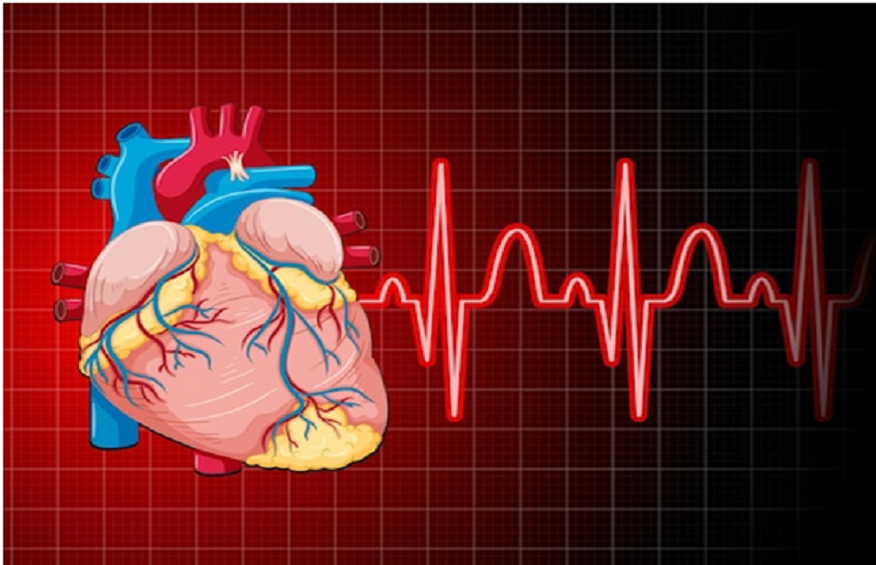Did you know that every year, over 17.9 million lives are claimed by heart disease worldwide?
The human heart is a remarkable organ that tirelessly pumps blood, providing our body with oxygen and nutrients. Understanding the intricacies of heart rate is crucial for maintaining good cardiovascular health. In this blog, we’ll delve into the world of heart rates, from normal pulse rates and cardiac arrest symptoms to dangerous heart rates, heart resting rates, the connection to cardiac diseases, and hospitals in Gurgaon as viable healthcare facilities.
Normal Pulse Rate
Your normal pulse rate, also called your heart rate, is the number of times your heart beats in one minute. It provides crucial information about the health of your cardiovascular system. Numerous factors can impact your normal pulse rate:
1. Age: Heart rate is influenced by age, with variations observed across different stages of life. Newborns typically have a higher heart rate, averaging around 120-160 beats per minute (bpm). In contrast, adults typically have a lower heart rate, ranging from 60-100 bpm
2. Fitness Level: Athletes typically have lower heart resting rates than the average population, sometimes falling below 60 bpm. This is because their cardiovascular systems are highly efficient.
3. Emotional State: Stress, anxiety, and excitement can temporarily elevate heart rate.
4. Medications: Some medications, like stimulants, can affect heart rate.
When you are relaxed and at rest, a healthy heart resting rate falls within the normal range. For most adults, this is typically between 60-100 beats per minute (bpm). However, a lower heart resting rate often indicates better cardiovascular fitness.
Cardiac Arrest Symptoms
Cardiac arrest is a dangerous condition where the heart abruptly stops beating. It’s crucial to identify cardiac arrest symptoms so that immediate action can be taken, increasing the chances of survival. Some common cardiac arrest symptoms include:
1. Loss of Consciousness: The affected person may suddenly collapse and lose consciousness.
2. No Pulse or Breathing: In cardiac arrest, there is no detectable pulse or normal breathing.
3. Gasping for Breath: Some individuals may exhibit irregular, gasping breaths that are not normal.
4. Chest Pain or Discomfort: While not always present, chest pain or discomfort can sometimes precede cardiac arrest.
5. Dizziness or Fainting: Some individuals may feel dizzy or faint just before a cardiac arrest episode.
It’s crucial to remember that quick response is paramount if cardiac arrest symptoms are visible. Immediate CPR and an automated external defibrillator (AED) can significantly improve survival rates.
Dangerous Heart Rate
A dangerous heart rate deviates from the normal range for your age group and overall health. The specific definition of what constitutes a dangerous heart rate can vary, but there are some general guidelines to consider:
1. Tachycardia: Tachycardia is a condition characterised by a faster-than-normal heart rate, typically exceeding 100 beats per minute, even at rest. This persistent rapid heartbeat can put a strain on the heart and may contribute to the development of various cardiac conditions.
2. Bradycardia: Bradycardia is when the heart beats abnormally slowly, typically below 60 times per minute. When severe, bradycardia can lead to inadequate blood flow to essential organs in the body.
3. Arrhythmias: Irregular heart rhythms, or arrhythmias, can be dangerous. A specific type called atrial fibrillation has the potential to cause blood clots and strokes.
4 . Extreme Variability: Heart rate variability that is characterised by rapid and unpredictable changes can be worrisome since it may signal underlying cardiac issues.
If you notice ongoing, unexplained fluctuations in your heart rate, it’s crucial to seek advice from a healthcare professional. They can assess whether additional evaluation or treatment is needed.
Heart Resting Rate
Your heart’s resting rate is when you’re completely at rest. This measurement is often taken in the morning, just after waking up. To measure your heart resting rate:
1. Find Your Pulse: Place two fingers on your wrist (radial artery) or neck (carotid artery). Avoid using your thumb, as it has its pulse.
2. Count the Beats: Using a timer, count the number of beats for 60 seconds.
3. Repeat for Accuracy: For a more accurate reading, repeat this process for a few mornings and calculate the average.
Your resting heart rate can be an essential indicator of your cardiovascular fitness. Regular monitoring can help you track changes in your health over time. An increasing resting heart rate may signal an underlying issue, such as stress or overtraining, which should be addressed promptly.
Cardiac Disease
Cardiac disease and stroke are the top causes of death globally. It is crucial to comprehend the connection between irregular heart rates and cardiovascular ailments.
1. Tachycardiaand Cardiovascular Disease: Having a persistent rapid heart rate, known as tachycardia, can negatively affect cardiovascular health. It can contribute to conditions such as high blood pressure and heart failure and may also increase the risk of developing heart disease.
2. Bradycardia and Cardiovascular Disease: Bradycardia, a condition characterised by a slow heart rate, can be caused by blockages or damage to the heart. This can result in episodes of fainting and may indicate underlying cardiovascular problems.
3. Arrhythmias and Cardiovascular Disease: Certain heart rhythm abnormalities, such as atrial fibrillation, are linked to a higher risk of stroke and heart disease.
It is important to regularly visit your health provider for check-ups to identify and manage risk factors associated with cardiac diseases effectively. By making lifestyle changes, taking medication, and considering other interventions, you can take steps towards preventing these conditions.
Hospitals in Gurgaon
Access to quality healthcare facilities is crucial, especially in emergencies. Gurgaon, a thriving city in India, is home to several world-class hospitals that cater to a wide range of medical needs. Some prominent hospitals in Gurgaon include:
1. Medanta – The Medicity: Known for its comprehensive cardiac care, Medanta offers advanced treatments and surgical procedures for heart-related conditions.
2. Artemis Hospital: Artemis Hospital is equipped with modern technology and a team of skilled cardiologists, making it a preferred choice for heart patients.
3. Fortis Memorial Research Institute: Fortis offers a broad spectrum of cardiac services, from diagnostics to complex surgeries.
4. Columbia Asia Hospital: This hospital is known for its commitment to providing top-quality cardiac disease care services to patients.
Conclusion
It is crucial to understand heart rate to maintain optimal cardiovascular health thoroughly. This includes recognizing the symptoms of cardiac arrest, monitoring your heart resting rate, and being aware of dangerous heart rates.
Early detection and intervention are key in ensuring proper care. It’s important to prioritise your heart health and regularly visit healthcare professionals for check-ups. Access to reputable healthcare facilities, such as hospitals in Gurgaon, can provide peace of mind and prompt responses during cardiac emergencies.
Take control of your heart health today for a healthier future by consulting with a super-specialty hospital.



